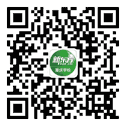2017年大学英语四级阅读寒假练习题(15)_大学英语四级成绩查询时间
2017-02-16 15:35
来源:新东方网整理
作者:
英语四级阅读理解是英语四级考试中的重点部分,而随着时代的发展,英语四级中的阅读题型也在不断更替改变,下面是小编为大家整理的英语四级阅读寒假练习题,希望可以为大家带来帮助。
2017年大学英语四级阅读寒假练习题汇总
Passage Four
Questions 36 to 40 are based on the following passage.
For some time past it has been widely accepted that babies-and other creatures-learn to do things because certain acts lead to "rewards"; and there is no reason to doubt that this is true. But it used also to be widely believed that effective rewards, at least in the early stages, had to be directly related to such basic physiological(生理的) "drives" as thirst or hunger. In other words, a baby would learn if he got food or drink or some sort of physical comfort, not otherwise.
It is now clear that this is not so. Babies will learn to behave in ways that produce results in the world with no reward except the successful outcome.
Papousek began his studies by using milk in the normal way to "reward" the babies and so teach them to carry out some simple movements, such as turning the head to one side or the other. Then he noticed that a baby who had had enough to drink would refuse the milk but would still go on making the learned response with clear signs of pleasure. So he began to study the children's responses in situations where no milk was provided. He quickly found that children as young as four months would learn to turn their heads to right or left if the movement "switched on" a display of lights-and indeed that they were capable of learning quite complex turns to bring about this result, for instance, two left or two right, or even to make as many as three turns to one side.
Papousek's light display was placed directly in front of the babies and he made the interesting observation that sometimes they would not turn back to watch the lights closely although they would "smile and bubble" when the display came on. Papousek concluded that it was not primarily the sight of the lights which pleased them, it was the success they were achieving in solving the problem, in mastering the skill, and that there exists a fundamental human urge to make sense of the world and bring it under intentional control.
36. According to the author, babies learn to do things which .
A) are directly related to pleasure
B) will meet their physical needs
C) will bring them a feeling of success
D) will satisfy their curiosity
37. Papousek noticed in his studies that a baby .大学英语四级成绩查询时间
A) would make learned responses when it saw the milk
B) would carry out learned movements when it had enough to drink
C) would continue the simple movements without being given milk
D) would turn its head to right or left when it had enough to drink
38. In Papousek's experiment babies make learned movements of the head in order to .
A) have the lights turned on B) be rewarded with milk C) please their parents D) be praised
39. The babies would "smile and bubble" at the lights because .
A) the lights were directly related to some basic "drives" B) the sight of the lights was interesting
C) they need not turn back to watch the lights D) they succeeded in "switching on" the lights
40. According to Papousek, the pleasure babies get in achieving something is a reflection of .
A) a basic human desire to understand and control the world
B) the satisfaction of certain physiological needs
C) their strong desire to solve complex problems
D) a fundamental human urge to display their learned skills
参考答案:
36-40 .CCADA

新东方重庆学校微信(微信号:xdf_cq)
最新考试资讯、教育新闻,请扫一扫二维码,关注我们的官方微信!
版权及免责声明
①凡本网注明"稿件来源:新东方"的所有文字、图片和音视频稿件,版权均属新东方教育科技集团(含本网和新东方网) 所有,任何媒体、网站或个人未经本网协议授权不得转载、链接、转贴或以其他任何方式复制、发表。已经本网协议授权的媒体、网站,在下载使用时必须注明"稿件来源:新东方",违者本网将依法追究法律责任。
② 本网未注明"稿件来源:新东方"的文/图等稿件均为转载稿,本网转载仅基于传递更多信息之目的,并不意味着赞同转载稿的观点或证实其内容的真实性。如其他媒体、网站或个人从本网下载使用,必须保留本网注明的"稿件来源",并自负版权等法律责任。如擅自篡改为"稿件来源:新东方",本网将依法追究法律责任。
③ 如本网转载稿涉及版权等问题,请作者见稿后在两周内速来电与新东方网联系,电话:010-60908555。